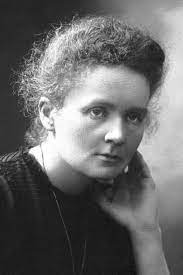Marie Curie, born Maria Skłodowska in Warsaw, Poland, in 1867, is one of the most renowned scientists in history. Her contributions to the fields of physics and chemistry, particularly her pioneering research on radioactivity, revolutionized scientific understanding and laid the foundation for numerous scientific advancements. This essay explores Marie Curie’s origins, her significant contributions to science, and her groundbreaking invention of radioactivity before 1950.
Origins and Early Life
Marie Curie hailed from a modest family and faced numerous obstacles on her path to scientific greatness. Born in Russian-occupied Poland, she received a rigorous education, which was rare for women at the time. Curie’s thirst for knowledge led her to Paris, where she studied physics and mathematics at the Sorbonne University.
Contributions to Science
Marie Curie’s contributions to science are numerous and far-reaching. Together with her husband, Pierre Curie, she embarked on groundbreaking research in the late 19th century. In 1898, the Curies discovered the phenomenon of radioactivity while investigating the properties of uranium. They coined the term “radioactivity” and demonstrated that certain elements spontaneously emit radiation without any external influence.
Curie’s tireless work culminated in her isolation of two new elements, polonium and radium. In 1903, she became the first woman to win a Nobel Prize, sharing the honor with Pierre Curie and Antoine Henri Becquerel. Curie’s recognition continued in 1911 when she received her second Nobel Prize, this time in chemistry, for her discovery of radium and polonium.
Invention of Radioactivity
Marie Curie’s most significant invention is her groundbreaking research on radioactivity. By experimenting with uranium ore, she discovered that certain minerals emitted a form of energy that she termed “radioactivity.” This discovery challenged conventional scientific wisdom and opened the door to a new era of scientific exploration.
Curie’s research was not only groundbreaking but also immensely challenging. She faced numerous obstacles, including the dangers associated with working with radioactive substances. Despite the risks, Curie persevered and developed innovative techniques to isolate radium and polonium, two radioactive elements.
The invention of radioactivity revolutionized scientific understanding and had far-reaching implications. It paved the way for significant advancements in various scientific disciplines. For instance, radioactivity played a crucial role in the development of nuclear energy, leading to the creation of nuclear power plants and the atomic bomb. Additionally, the field of medicine benefited from Curie’s discovery, as radioactivity became instrumental in the treatment of cancer through radiotherapy.
Moreover, Curie’s invention of radioactivity led to the establishment of new scientific disciplines, such as nuclear physics and radiology. Scientists and researchers worldwide were inspired by her work, spurring countless studies and discoveries that continue to shape our understanding of the universe.
Conclusion
Marie Curie’s remarkable contributions to science, particularly her groundbreaking research on radioactivity, have left an indelible mark on the scientific community. Her discovery revolutionized scientific understanding, led to the development of new scientific disciplines, and had profound implications for various fields, including medicine and energy. Marie Curie’s tireless dedication, groundbreaking research, and unwavering determination serve as an inspiration to aspiring scientists worldwide. Her legacy continues to shape the scientific landscape, reminding us of the transformative power of human curiosity, perseverance, and the pursuit of knowledge.
By: Esha khan
Write and Win: Participate in Creative writing Contest & International Essay Contest and win fabulous prizes.















